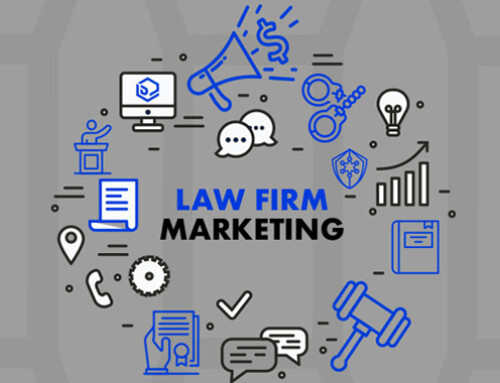Contents
Artificial Intelligence for Lawyers: Overview
In the rapidly evolving world of legal practice, artificial intelligence (AI) stands out as a transformative force, redefining the boundaries of what’s possible. At its core, AI simulates human intelligence processes by machines, especially computer systems. These processes include learning (the acquisition of information and rules for using the information), reasoning (using rules to reach approximate or definite conclusions), and self-correction. The relevance of AI for lawyers extends far beyond mere theoretical interest; it represents a practical tool capable of enhancing efficiency, accuracy, and the scope of legal services.
The intersection of AI and law is particularly potent. AI technologies, through machine learning algorithms and natural language processing, can analyze vast quantities of legal data at speeds no human can match. This capability is not just about doing things faster; it’s about doing them better. AI can uncover insights from past case law, legal precedents, and regulatory documents in a fraction of the time it would take even the most diligent legal teams. For instance, AI-powered legal research tools can sift through millions of legal documents to find relevant case law, statutes, and legal commentary, providing lawyers with a formidable arsenal to support their cases.
Moreover, the advancement of AI for lawyers is continually expanding, touching on everything from predictive analytics, which forecasts the outcomes of legal proceedings, to Workflow Automation and contract analysis. These advancements are not merely incremental; they represent a leap forward in how legal professionals can serve their clients, manage their workflows, and navigate the complexities of the law.
In this context, artificial intelligence for lawyers is not a distant future but a present reality. It offers a pathway to not only streamline administrative tasks but also to refine the very essence of legal practice—enhancing the delivery of justice and the provision of legal services to those who need them. As we delve deeper into the specifics of AI’s application in law, it becomes clear that embracing AI is not just an option for legal professionals; it’s a necessity for those looking to thrive in the modern legal landscape.
Integrating AI into legal practice opens up a new realm of possibilities for lawyers and law firms alike. From automating routine tasks to providing advanced analytical tools, AI empowers legal professionals to focus more on strategic decision-making and less on the minutiae of legal processes. As we continue to explore the rise of artificial intelligence for lawyers, the impact of AI on traditional legal practices, and the ethical considerations it brings to the fore, the overarching message is clear: AI for lawyers is a game-changer, offering unprecedented opportunities to enhance the practice of law.
The Rise of Artificial Intelligence in Legal Services
The integration of artificial intelligence (AI) into legal services marks a significant shift in how legal professionals approach their work. AI tools, such as ChatGPT, are revolutionizing traditional legal tasks, including research, contract review, litigation support, and even client interaction. These advancements are not just changing the tools at lawyers’ disposal; they are reshaping the very fabric of legal practices.
AI’s application in legal research is a prime example of this transformation. Legal professionals can now leverage AI-powered tools to sift through vast databases of legal documents, case law, and statutes quickly and efficiently. This not only speeds up the research process but also increases its accuracy, ensuring that lawyers have the most relevant information at their fingertips. For instance, AI systems can identify patterns and precedents in case law that might be missed by the human eye, offering insights that can be pivotal in formulating legal strategies.
Contract review and analysis have also been revolutionized by AI. Traditional contract review is a time-consuming task, requiring meticulous attention to detail over lengthy documents. AI tools can review these documents in a fraction of the time, identifying key clauses, potential issues, and areas for negotiation. Moreover, AI can learn from each review, continually improving its accuracy and effectiveness. This not only speeds up the contract review process but also enhances its quality, allowing lawyers to provide more informed advice to their clients.
The impact of AI on traditional legal practices extends beyond individual tasks. It is changing the landscape of legal service delivery, making it more efficient and accessible. AI-driven legal chatbots, for example, can provide preliminary legal advice 24/7, widening access to legal assistance and freeing up lawyers to focus on more complex, high-value tasks. Similarly, predictive analytics tools can forecast litigation outcomes based on historical data, offering valuable insights that can inform case strategy and client advice.
However, the rise of AI in legal services is not without its challenges. There are concerns about the accuracy of AI tools, the potential for bias in their outputs, and the implications for employment within the legal sector. Despite these challenges, the benefits of AI for lawyers—increased efficiency, accuracy, and the ability to offer more strategic, informed legal advice—cannot be overstated. As legal professionals increasingly adopt AI tools, they are finding that these technologies not only enhance their practice but also allow them to provide a higher level of service to their clients.
In embracing AI, the legal profession is at the forefront of a broader shift towards digital transformation. This movement is not just about adopting new technologies; it’s about rethinking how legal services are delivered and how lawyers can best serve their clients in the digital age. As we move forward, the integration of AI into legal practice promises to continue reshaping the landscape, offering exciting opportunities for innovation and improvement in the legal profession.
Read more: 7 Tips for Better Legal GPT Prompts for Lawyers
Ethical and Practical Considerations of Artificial Intelligence in Law
The utilization of artificial intelligence (AI) for lawyers heralds a new era of efficiency and innovation. However, it also raises significant ethical and practical considerations that legal professionals must navigate. As AI becomes more ingrained in the fabric of legal services, issues such as data privacy, client confidentiality, and the potential for bias in AI algorithms come to the forefront, challenging traditional Ethical Frameworks and calling for a nuanced approach to the use of AI in law.
1. Data Privacy and Client Confidentiality
One of the cornerstone principles of Legal Practice Management Software is the protection of client confidentiality. With AI’s capability to process and analyze vast amounts of data, ensuring the privacy and security of this information is paramount. Legal professionals must be vigilant in selecting AI tools that adhere to stringent data protection standards and are capable of safeguarding sensitive client information. This involves a thorough vetting process for AI vendors and a clear understanding of how data is stored, processed, and protected against unauthorized access or breaches.
2. Bias and Fairness
Another critical consideration is the potential for bias in AI algorithms. AI systems are only as unbiased as the data they are trained on. If the underlying data contains biases, the AI’s conclusions and recommendations may also be skewed, leading to unfair or prejudiced outcomes. Legal professionals must be aware of this risk and take steps to mitigate bias by ensuring that AI tools are trained on diverse and representative datasets. Moreover, there must be a continuous effort to monitor and adjust AI algorithms to prevent discriminatory practices and ensure fairness in legal proceedings.
3. Accountability and Transparency
The use of AI in legal decision-making processes also raises questions about accountability and transparency. As AI systems can process information in ways that are not always transparent to humans, it can be challenging to understand how certain conclusions were reached. This lack of transparency can complicate accountability, particularly when AI-driven decisions need to be explained or justified to clients or in court. Legal professionals must ensure that the AI tools they use are not only effective but also operable in a manner that allows for accountability and the ability to provide clear, understandable explanations of their outputs.
4. Navigating the Pitfalls
To effectively navigate these ethical and practical considerations, legal professionals must stay informed about the latest developments in AI and ethics. This includes participating in ongoing education and training on ethical AI use, engaging in discussions with peers and experts, and contributing to the development of industry standards and best practices for AI in law. By taking a proactive approach, lawyers can leverage the benefits of AI while addressing its challenges, ensuring that their Use of Technology aligns with the highest ethical standards and serves the best interests of their clients and society.
The integration of AI into legal practice is not just about harnessing new technology; it’s about doing so in a way that upholds the core values of the legal profession. By carefully considering the ethical and practical implications of AI, lawyers can lead the way in developing responsible, equitable, and effective approaches to the use of AI in law, ensuring that the justice system remains fair and accessible in the age of artificial intelligence.
Artificial Intelligence and the Future of Legal Jobs
The rapid advancement and integration of artificial intelligence (AI) into the legal sector bring both opportunities and challenges, especially regarding the Future of the Legal Industry. As AI technologies automate routine tasks and analyze complex legal data with unprecedented speed and accuracy, the roles and requirements of legal professionals are undeniably evolving. This transformation prompts a critical examination of how AI might change the nature of legal work and its implications for employment within the sector.
1. Automation and the Legal Profession
One of the most evident impacts of AI on legal jobs is the automation of routine tasks, such as document review, legal research, and even some aspects of contract drafting. This shift towards automation can significantly enhance efficiency, allowing legal professionals to focus on more complex, strategic aspects of their work. However, it also raises questions about the need for traditional legal roles focused primarily on these routine tasks. As AI continues to advance, law firms and legal departments must reassess the skillsets they value and seek in new hires, placing a greater emphasis on analytical thinking, strategic planning, and technological proficiency.
2. The Changing Landscape of Legal Employment
While the automation of certain tasks may reduce the demand for some traditional legal roles, it also creates opportunities for new types of legal jobs centered around the use of AI. Legal technology specialists, AI ethics compliance officers, and data privacy experts are just a few examples of roles that are becoming increasingly important in the legal sector. These positions require a deep understanding of both law and technology, highlighting the need for legal professionals to develop new skills and knowledge areas.
3. AI’s Impact on Legal Education and Training
The changing requirements of legal jobs due to AI also have significant implications for legal education and training. Law schools and continuing legal education providers must adapt their curricula to include courses on legal technology, AI, and data analysis. By equipping future lawyers with the skills needed to work effectively alongside AI, the legal profession can ensure its readiness for the ongoing technological transformation.
4. Balancing Automation and Human Expertise
Despite the potential for AI to automate certain legal tasks, the importance of human expertise and judgment in the legal profession cannot be overstated. AI tools lack the ability to understand the nuances of human behavior, the ethical considerations inherent in legal decision-making, and the emotional intelligence required to navigate client relationships. Therefore, the future of legal jobs is not a choice between humans and AI but a synergy that combines the strengths of both. Legal professionals who can leverage AI to enhance their practice while maintaining the human touch that is essential to legal work will be the most successful in this new landscape.
5. Preparing for the Future
For legal professionals and students preparing for careers in law, embracing AI and its implications for legal jobs is essential. This means not only staying informed about the latest developments in legal technology but also actively seeking opportunities to develop relevant skills. Networking with legal technology experts, participating in legal hackathons, and taking courses in AI and data analytics are just a few ways to build the competencies needed for the future of legal work.
As the legal profession navigates the implications of AI for legal jobs, the focus should be on adaptation and lifelong learning. By embracing the changes brought about by AI, legal professionals can ensure that they remain valuable and relevant in a rapidly evolving legal landscape, where technology and human expertise work hand in hand to deliver justice and legal services more efficiently and effectively than ever before.
Integrating AI into Your Legal Practice
As the legal industry continues to evolve under the influence of artificial intelligence (AI), law firms and legal professionals are presented with both challenges and opportunities. The integration of AI into legal practice is not just about adopting new technologies; it’s about leveraging these tools to enhance the efficiency, accuracy, and quality of legal services. For lawyers looking to stay ahead in a competitive landscape, understanding how to effectively integrate AI into their practice is crucial. This section provides practical tips and highlights specific AI tools that can transform various aspects of legal work.
1. Start with a Clear Strategy
The first step in integrating AI into your legal practice is to develop a clear strategy that aligns with your firm’s goals and client needs. This involves identifying the areas of your practice where AI can have the most significant impact, whether it’s automating routine tasks, enhancing legal research, or improving document management. By focusing on these areas, you can prioritize investments in AI technologies that offer the most value to your practice and your clients.
2. Choose the Right AI Tools
The market is flooded with legal technology solutions, but not all AI tools are created equal. It’s essential to choose solutions that are specifically designed for legal applications and have a proven track record of success. Look for AI tools that offer features relevant to your practice areas, such as contract analysis software for corporate lawyers or predictive analytics tools for litigators. Additionally, consider the tool’s ease of use, integration capabilities with your existing systems, and the level of support provided by the vendor.
3. Invest in Training and Change Management
Integrating AI into your practice is not just a technical challenge; it’s also a cultural one. To ensure successful adoption, invest in training for your team to help them understand how to use AI tools effectively. This includes not only technical training on the software itself but also education on the broader implications of AI for legal practice. Additionally, implementing change management practices can help address resistance to new technologies and foster a culture of innovation within your firm.
4. Focus on Ethical Considerations and Compliance
As mentioned earlier, the use of AI in legal practice raises important ethical considerations, including data privacy, client confidentiality, and the potential for bias. Ensure that any AI tools you adopt comply with relevant legal and ethical standards. This may involve conducting thorough due diligence on vendors, setting clear guidelines for the use of AI in your practice, and staying informed about evolving regulations and standards related to AI in the legal industry.
5. Measure Success and Iterate
Finally, it’s crucial to measure the impact of AI on your practice and adjust your strategy as needed. This can involve tracking metrics such as time saved on routine tasks, improvements in case outcomes, or client satisfaction levels. By continually assessing the effectiveness of AI tools and making adjustments based on feedback and results, you can ensure that your practice remains at the cutting edge of legal technology.
6. Highlighting Legal-Specific AI Tools
Several AI tools have been specifically designed to address the unique challenges of legal work. These include:
- Legal Research Platforms: Tools like LexisNexis and Westlaw use AI to help lawyers conduct more efficient and comprehensive legal research.
- Contract Analysis Software: Solutions like Kira Systems and Luminance offer AI-powered document review and analysis, streamlining the contract review process.
- Predictive Analytics: Tools such as Lex Machina provide data-driven insights into legal trends and case outcomes, aiding in strategic decision-making.
- Document Automation: Platforms like RunSensible enable lawyers to automate the creation of legal documents, reducing manual effort and minimizing errors.
By integrating these and other AI tools into your legal practice, you can enhance your service offering, improve efficiency, and stay competitive in a rapidly changing legal landscape. Embracing AI is not just about keeping up with technology trends; it’s about leveraging these advancements to better serve your clients and advance the practice of law.
Preparing for the AI Revolution in Law
The legal profession is on the cusp of a significant transformation, driven by the rapid advancement and adoption of artificial intelligence (AI). As AI technologies continue to evolve, legal professionals must not only adapt to the present changes but also prepare for the future landscape of the legal sector. This preparation involves developing a robust understanding of AI and its potential implications for law, as well as acquiring the skills and knowledge necessary to leverage these technologies effectively. Here are strategies legal professionals can employ to navigate the AI revolution in law successfully.
Develop AI Literacy
Legal professionals must cultivate a foundational understanding of AI, including how it works, its applications in the legal field, and the ethical considerations it raises. This literacy is crucial for making informed decisions about integrating AI tools into legal practice and for advising clients on matters related to technology. Resources for building AI literacy include online courses, webinars, and publications dedicated to AI in law. Participation in legal technology conferences and seminars can also provide valuable insights into the latest AI developments and their practical applications.
Engage with Legal Tech Communities
Building a network within legal tech communities can offer legal professionals support, insights, and collaboration opportunities. These communities often include tech-savvy lawyers, legal technology providers, and researchers working at the intersection of law and AI. Engaging with these communities through social media, online forums, and industry events can help legal professionals stay abreast of new tools, best practices, and emerging trends in legal AI.
Foster a Culture of Innovation
For law firms and legal departments, fostering a culture of innovation is key to successfully navigating the AI revolution. This involves encouraging curiosity, experimentation, and continuous learning among staff. Firms can support innovation by providing access to legal technology tools, sponsoring attendance at legal tech conferences, and creating internal task forces dedicated to exploring AI applications in legal work. By embracing innovation, legal organizations can not only adapt to the changes brought by AI but also lead the way in redefining legal practice for the future.
Invest in Continuous Education
The field of legal technology is evolving rapidly, making continuous education essential for legal professionals. This includes not just formal education but also informal learning opportunities, such as participating in hackathons, attending workshops, and following legal tech influencers. Continuous education can help legal professionals develop the technical skills required to use AI tools effectively and the strategic thinking needed to apply these technologies in a way that enhances legal services.
Stay Informed About Future Trends
Finally, legal professionals must keep an eye on future trends in AI that could impact the legal sector. This involves monitoring advancements in machine learning, natural language processing, and other AI technologies, as well as staying informed about regulatory changes related to AI. By understanding the direction in which legal technology is headed, legal professionals can anticipate changes, prepare accordingly, and seize opportunities to innovate and improve their practice.
The AI revolution in law offers both challenges and opportunities for legal professionals. By developing AI literacy, engaging with legal tech communities, fostering a culture of innovation, investing in continuous education, and staying informed about future trends, legal professionals can position themselves to thrive in the rapidly evolving legal landscape. Embracing AI not only enhances the practice of law but also ensures that legal services remain relevant, efficient, and accessible in the digital age.
Conclusion
The journey through the implications, applications, and considerations of artificial intelligence (AI) in the legal sector underscores its transformative potential. As we’ve explored, AI for lawyers is no longer a speculative concept but a tangible reality reshaping the legal landscape. From automating routine tasks to providing sophisticated analytical tools, AI is enhancing the efficiency, accuracy, and breadth of legal services, enabling lawyers to deliver unprecedented value to their clients.
However, integrating AI into legal practice is not without its challenges. Ethical considerations, such as data privacy, client confidentiality, and the potential for algorithmic bias, necessitate a thoughtful approach to the adoption of AI technologies. Similarly, the evolution of legal jobs in the face of automation and the need for a new skillset highlight the importance of adaptability and continuous learning for legal professionals. Yet, the overarching narrative remains one of opportunity—the chance to redefine legal practice for the better, making it more efficient, accessible, and equitable.
For law firms and legal practitioners ready to embark on this transformative journey, the message is clear: embracing AI is not optional but essential for staying competitive and meeting the evolving needs of clients in a digital world. It’s about leveraging technology to not only optimize operations but also to enhance the very essence of legal service delivery.
In preparing for the AI revolution in law, legal professionals must prioritize developing AI literacy, engaging with legal tech communities, fostering a culture of innovation, and investing in continuous education. These steps are crucial for navigating the complexities of AI integration and ensuring that the legal profession remains at the forefront of innovation and excellence.
As we look to the future, RunSensible stands as a beacon for law firms navigating the AI landscape. Our legal Case Management Software embodies the forward-thinking approach needed in today’s digital era, offering smart features designed to streamline legal workflows, improve client service, and harness the power of AI. By choosing RunSensible, legal professionals can not only adapt to the changes brought by AI but also thrive, ensuring their practice is well-positioned for the opportunities and challenges ahead.
Embrace the future of legal practice with RunSensible. Discover how our legal case management software can transform your firm, making it more efficient, responsive, and innovative. Try RunSensible today and take the first step towards a more dynamic, AI-enhanced legal practice.
In navigating the complexities and embracing the opportunities presented by artificial intelligence in law, the legal profession stands on the precipice of a new era of innovation and efficiency. The integration of AI offers a path to not only streamline operations but also to significantly enhance the quality and accessibility of legal services. As we forge ahead, the collaborative synergy between human expertise and technological advancement will undoubtedly redefine the landscape of legal practice, making it more adaptable, inclusive, and forward-thinking.
FAQs
1. How does AI specifically benefit lawyers in their daily tasks?
AI offers a multitude of benefits to lawyers by automating routine and time-consuming tasks, such as document review, legal research, and contract analysis. This automation allows lawyers to focus more on complex legal analysis, strategy formulation, and client interaction. Additionally, AI enhances the accuracy and speed of legal work, from identifying relevant case law to predicting legal outcomes based on historical data. By leveraging AI, lawyers can improve their efficiency, reduce the risk of errors, and provide more insightful, data-driven advice to their clients.
2. Can AI replace human lawyers?
While AI significantly enhances the efficiency and capabilities of legal practices, it is not poised to replace human lawyers. AI lacks the ability to understand the nuances of human emotions, ethical considerations, and the complex judgment calls that are often required in legal matters. Lawyers bring irreplaceable skills to the table, including empathy, moral reasoning, negotiation, and advocacy. AI is best viewed as a tool that complements the skills of human lawyers, enabling them to deliver better, more efficient legal services.
3. How can law firms start integrating AI into their practice?
Law firms looking to integrate AI into their practice should begin by identifying specific areas where AI can have the most significant impact, such as document management, legal research, or client communication. The next step involves researching and selecting AI tools that are tailored to these needs and have a proven track record for reliability and effectiveness. Firms should also invest in training their staff to use these tools effectively and adapt their workflows accordingly. Additionally, it’s important for firms to consider the ethical implications of using AI and ensure that any tools they adopt are compliant with legal and professional standards. Starting small, with one or two AI applications, and gradually expanding their use as the firm becomes more comfortable with the technology, can also be a practical approach to integration.
Disclaimer: The content provided on this blog is for informational purposes only and does not constitute legal, financial, or professional advice.








